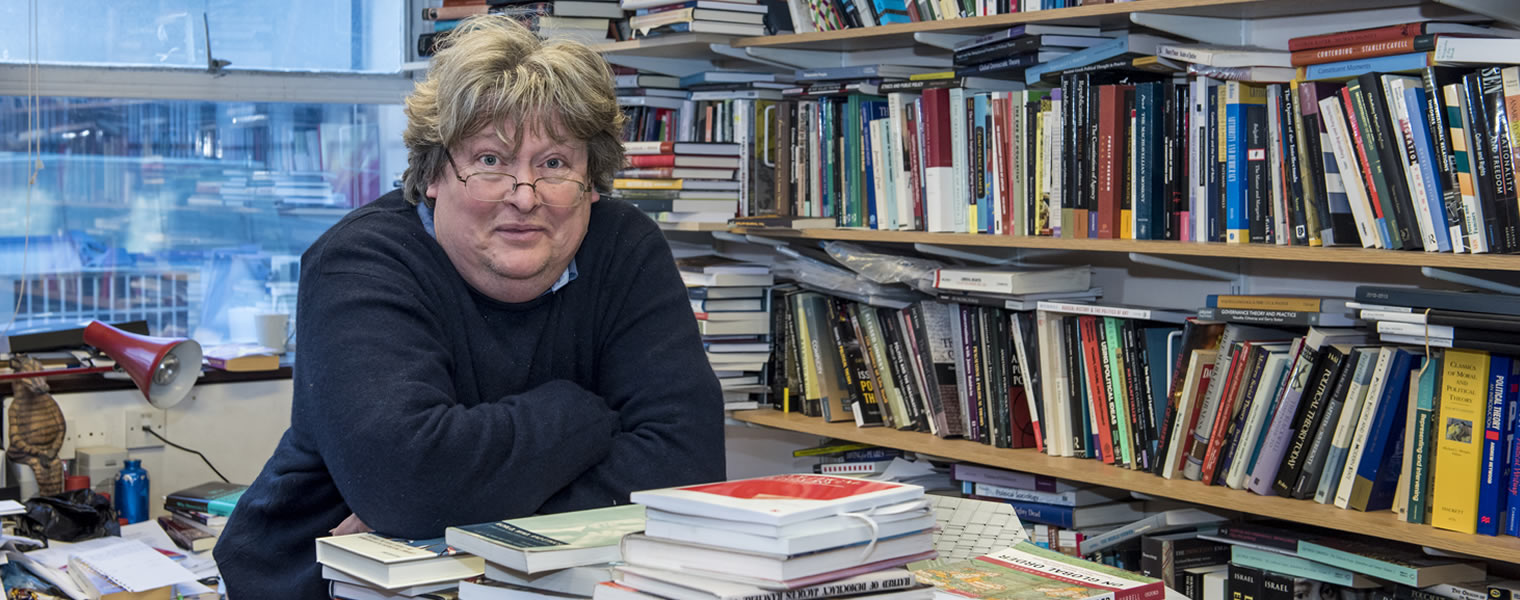Hartley News Online Your alumni and supporter magazine
Whether it’s labelled a far right political trend or populism, there have been seismic changes in the political landscape, including the Brexit vote and the election of Donald Trump in the US. With the French public due to vote in the Presidential elections in April, there may yet be more evidence of this populist trend. Southampton Connects asks some of the University’s researchers why this might be the case.
“There is a tendency to oversimplify and look for mono-causal explanations. Yet there are very distinct varieties of these trends,” says Dr Will Jennings, Senior Lecturer in Politics and International Relations at the University.
“Brexit was a function of long-term socio-economic trends, and while Trump organised his campaign around anti-politics, ultimately partisanship and polarisation was the key factor,” he says.
Dr Hedvig Schmidt, Associate Professor in EU Law at Southampton, agrees that the economic situation was key. “There was an issue with migration, but that was the straw that broke the camel’s back. It was much more about economic stagnation and the economic crisis of 2008–9. Brexit was a protest vote by people disillusioned with the whole process, and frustrated with the political elite who are seen as self-serving,” she says.
These views are supported by Will’s research, which has highlighted a long-term rise in discontent and distrust of politics and politicians. In addition, he adds, there is the politics of nostalgia.
“Trump’s support was concentrated in certain areas like the rust belt, the industrialised areas in the US where there has been economic shrinkage. In the UK, support for Brexit was strongest within communities that also have suffered economic decline and who feel a loss of identity, with nostalgia for a previous age where they had pride in their community.”
The impact of immigration
Another obvious aspect was anxiety about immigration. Yet despite this being one issue among a myriad, it is given far more bandwidth by the public and politicians alike.
“If you ask people for the percentage of migrants in the UK, they typically say a number two or three times higher,” says David Owen, Professor of Social and Political Philosophy at the University.
A similar effect is seen at Westminster.
Since 1986, there has been a new Immigration Act every three years. Prior to that, there were three in a century.
“This rise is not explained by migration facts, but rather that migrants have become the symbol of globalisation,” says David. Governments taking a tougher stance on migrants would be unlikely to affect public attitudes towards immigration, as migrants are not the root cause of public concerns. They are, instead, a symbol of other underlying factors that have yet to be addressed.
Migration in the EU has become a more politicised issue at Member State level. EU Treaties are built around the principle of solidarity, which should mean that when confronted with a flux of external refugees, states cooperate with one another to distribute the burden. But as was seen with the financial crisis of 2008, state interests supersede EU principles when the two conflict.
David believes that with the exception of Germany, Sweden and Greece, Member States have failed to meet their responsibilities under international refugee law. He points to the figures that show that at the end of 2015, the number of asylum applications from Syria to the EU was just under 700,000. In the same period, the number of Syrian refugees in Turkey was 2.18 million.
“Under international refugee law there is an obligation to come to a fair determination of anyone who reaches your border and makes an application for refugee status. Europe has primarily been trying to stop people reaching their borders so that they can’t make a claim. But a focus on trying to stop people crossing by sea doesn’t stop people coming. They just come under even riskier conditions,” he says.
In the unlikely event of a fairer distribution of refugees across Europe, David believes that other steps can be taken. One idea would be to invest in building industry and activities around the refugee camps.
“There is an interesting experiment in Africa where they started giving investment grants to refugees in camps for them to start businesses, and in a sense turn the camps into towns that had opportunities, rather than places where people are dependent on aid agencies handing out food.”
Another suggestion would be to establish safe passage routes from Syria and Libya to Europe. “Rather than sinking people smugglers’ boats, they could try employing them and regulating them,” he comments.
However, addressing the migration crisis will not halt the rise of populism.
“We will have to see if politicians start to address the underlying conditions, which are growth of inequality, and stagnant real wages. Until lower income parts of the population start to see the benefits and share in the growth of the global economic model, they will continue to be cynical about what politicians are offering them,” says Will.
The future of the EU
With France voting in the presidential elections in April, some are wondering whether the populist surge will sweep Front National candidate Marine Le Pen into power. The consensus is that if that happened, it would have profound and destabilising consequences for the EU.
Even if right wing candidate Francois Fillon is elected, it will colour the future of the EU, believes Hedvig. She suggests that over time we may see a multi-layered effect, with a group of close-knit countries remaining as the EU in the centre, moving to a group based on the old-style European Community, but still part of the single market, with a custom union without the intricate social policy elements towards the outer layers.
Further destabilisation of the EU could have a detrimental impact on universities that are already struggling with the Brexit effect.
“Brexit has put British universities in a very awkward position,” says Will. “It has been damaging to the sector’s reputation and sent a bad signal about our international engagement, both amongst students and academics, and there is anxiety about how it will impact on institutional cultures. That is beyond the more pragmatic questions around research funding.”
However, with the election in France pending, and Brexit discussions yet to begin, the full impact of these political changes remains hard to gauge.


